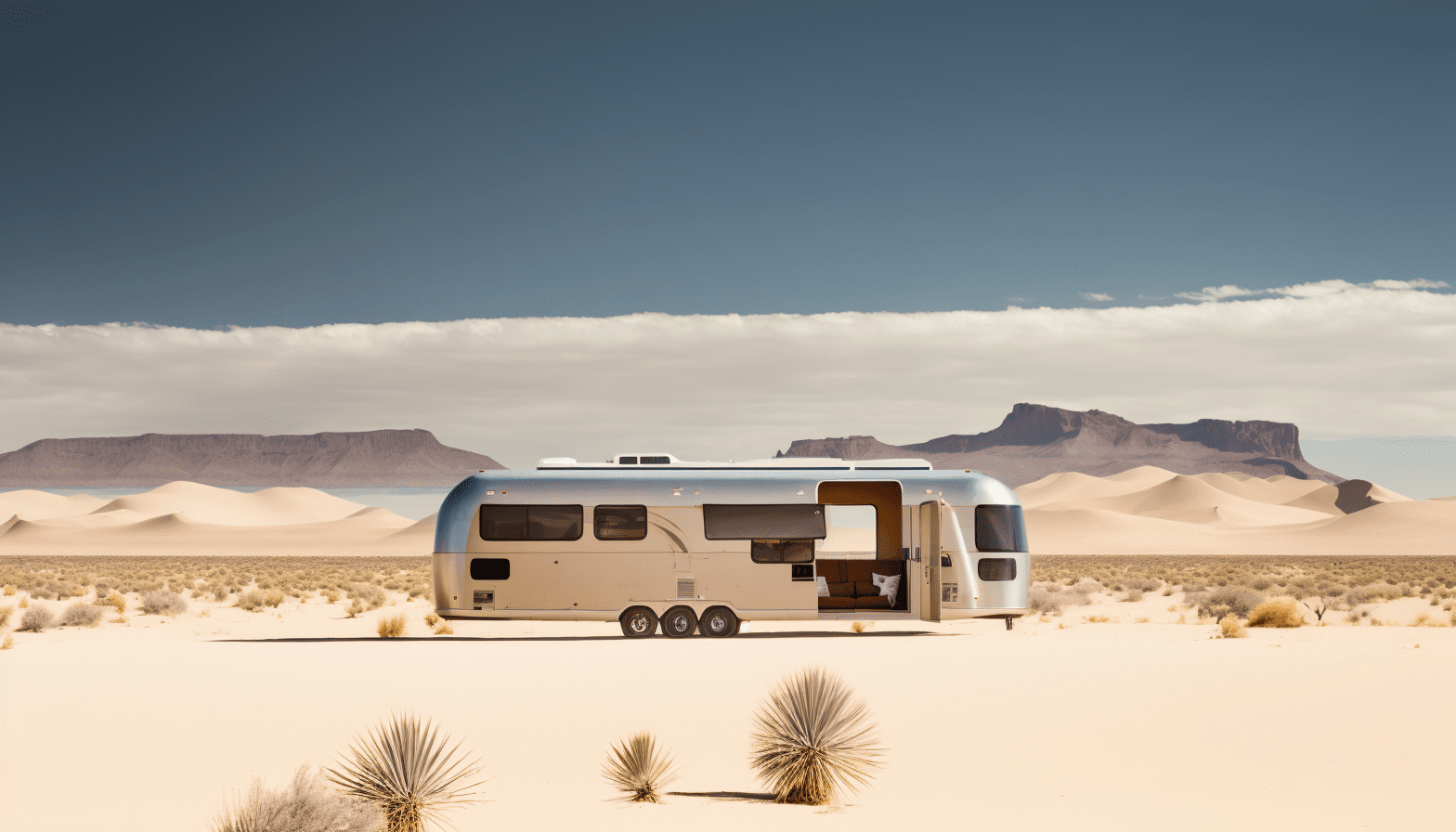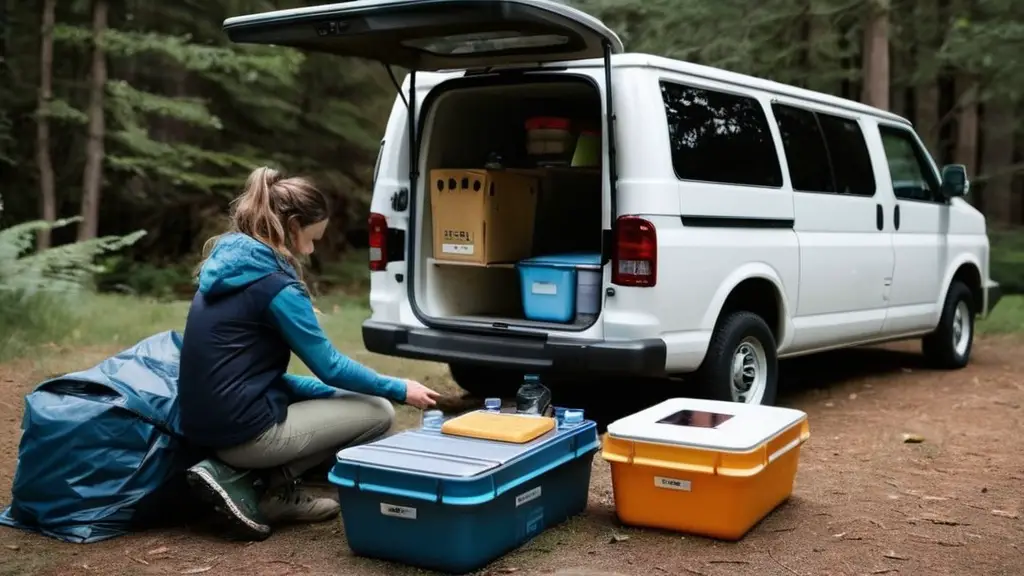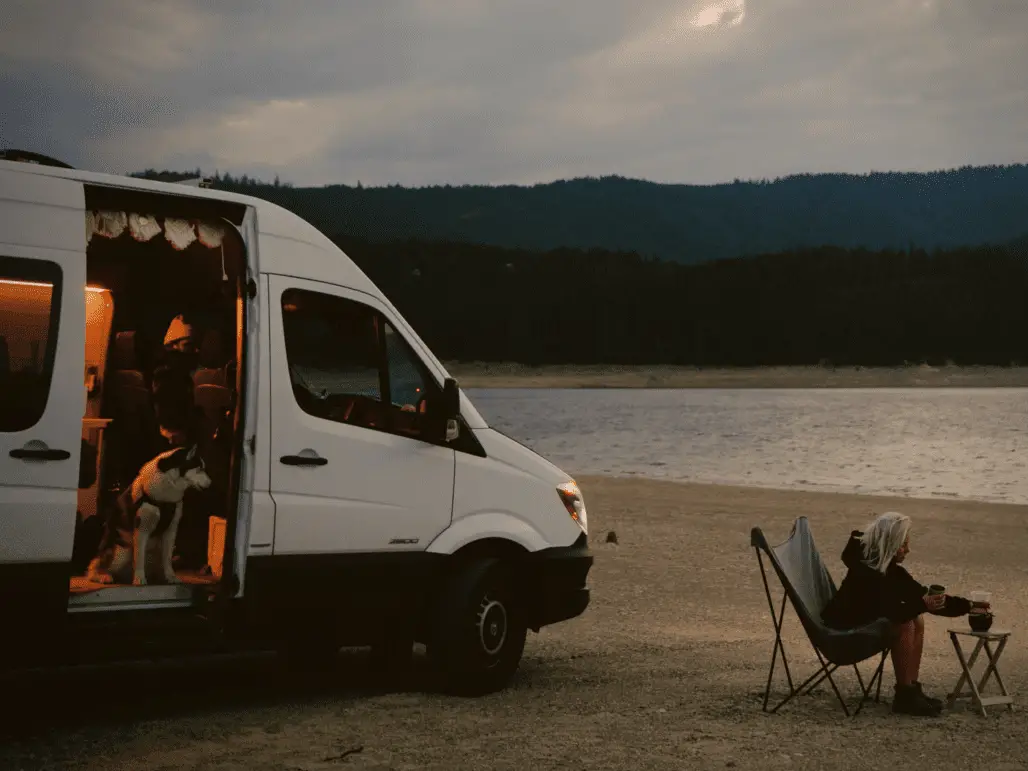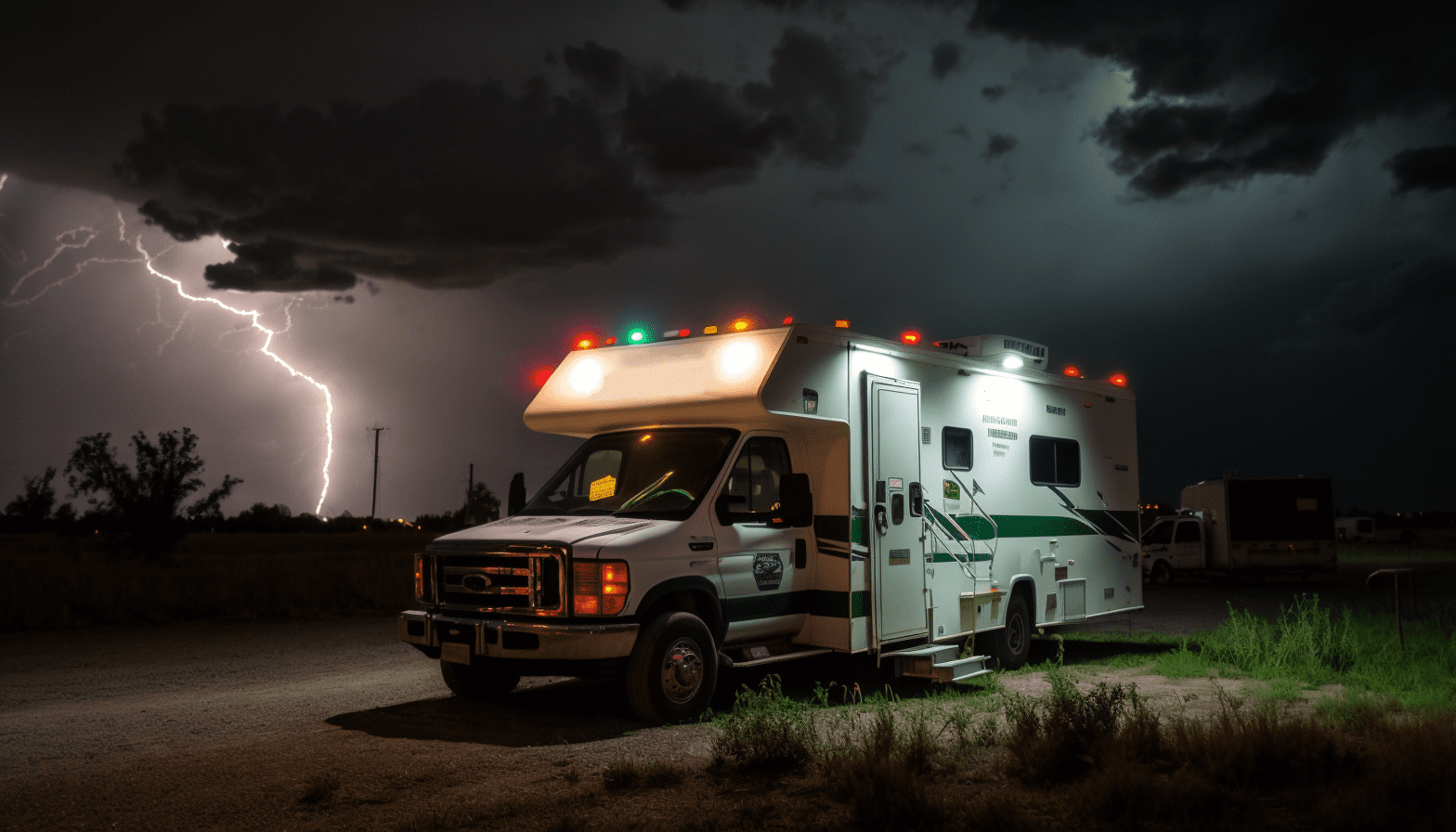Living full-time in an RV can be a dream come true for those who long to explore the world and experience the beauty it has to offer. But is it feasible? Is it something that’s right for you? Before setting out on this exciting journey, it’s important to know what’s involved with living life on the road. This article will provide insight into the nuances of full-time RV living so you can decide if this lifestyle fits your needs.
We often think of freedom as being able to go wherever we want, whenever we want. Full-time RV living offers just that – a chance to take whatever path speaks to us without delay or hesitation. For some, this is an opportunity too good to pass up; however, there are certain factors to consider before embarking on such an adventure. From figuring out how much space you need in your vehicle, where you plan to stay when traveling, and deciding whether or not you’ll work while roaming around, these considerations must all be taken into account prior to taking off down the open road.
Ready for an escape from reality? If so, let’s dive deep into the details surrounding full-time RV living! We’ll discuss what steps must be taken before getting started and tips for making sure your time on wheels brings joy instead of stress. So buckle up and get ready –it’s time hit the road!
Table of Contents
Overview Of Full-Time RV Living
Full-time RV living is an attractive lifestyle to many people, providing the freedom to explore different parts of the United States and stay in beautiful national parks. For those looking for a change from their current way of life, full-time RVing offers an exciting opportunity to experience something new while still having all the comforts they are used to.
The idea of being able to pick up at any time and go wherever you want has been around for decades but it’s only recently that technology has allowed for more frequent travelers who can make campground reservations, check weather conditions, and find remote places where few other full-time RVers have gone before.
The cost associated with full-time RV living varies greatly depending on how often travelers move locations, what type of campsites they choose, and which amenities they require. Some costs like fuel or vehicle maintenance may be higher than expected but overall expenses tend to be much lower than traditional housing arrangements. Furthermore, there are numerous benefits associated with full-time RV living such as being closer to nature and having more flexibility when making travel plans.
For those considering taking advantage of this unique lifestyle, it’s important to understand the nuances involved so that they can plan accordingly. This includes researching campgrounds ahead of time, budgeting appropriately, learning basic mechanical skills needed for repairs, and connecting with other full-timers online who are willing to share tips and advice about their own experiences. With proper planning and preparation anyone can embark on this journey confidently knowing that help is available should any issues arise along the way. From here we will discuss some of the advantages that come with living in an RV full-time…
Benefits Of Full-Time RV Life
The idea of full-time RV living can be exhilarating. The thought of the open road, surrounded by beautiful landscapes and the freedom to explore is a dream come true for many. There are numerous benefits that come with taking up this life of travel and exploration, from financial savings and more quality time spent together as a family, to discovering new places and meeting interesting people on your journey.
- Financial Benefits:
- Save money on rent/mortgage payments
- Spend less on groceries due to smaller refrigerator size
- Gas costs much lower than airfare
- Quality Time:
- More hours spent together in tight quarters
- Ability to have meaningful conversations while driving or camping at night
- No need to rush out of bed in order to get ready for work or school
- Adventure Awaits:
- New campsites every few days keeps it exciting!
- Explore different parts of country without having to book flights or hotels
- Make lifelong memories through unique experiences like campground showers or unexpected blog posts or guest post opportunities
RVing provides an excellent opportunity to take a break from everyday stresses and connect with nature, as well as with each other. Families who decide to embark on this type of full-time travel will be surprised how quickly their lives adjust back into the rhythm of being part of one cohesive unit instead of separate individuals spread across states trying frantically just keep up with daily schedules. With such flexibility comes incredible peace of mind – something we all strive for but rarely find in our chaotic modern lifestyle. To stay connected while on the road is another bonus afforded those lucky enough to call themselves full-time RVers.
Staying Connected While On The Road
When living full time in an RV, one of the most important components to consider is maintaining a reliable internet connection. Having access to the internet is essential for staying connected with family and friends, streaming your favorite shows, listening to music, online shopping, and more.
Depending on where you are located, there are several different options when it comes to keeping an internet connection while living in an RV. This can include using cellular data plans, satellite internet, or even public Wi-Fi hotspots. However, each option comes with its own pros and cons so it’s important to evaluate which option works best for your needs and budget.
For those who plan on spending extended periods of time in their RV, setting up a cellular data plan may be the best choice. There are many carriers that offer unlimited data plans specifically designed for RVs. These plans provide fast, reliable coverage no matter where you travel and often come with other added benefits such as free roaming and discounts on campground fees.
A satellite dish is an option for internet access that requires minimal setup, but may incur additional costs for required hardware or equipment. Depending on location, satellite connections may be slower than other options and can be prone to disruption in inclement weather.
Joining a public Wi-Fi hotspot is another cost-free solution to accessing the internet. It may not operate at the same speed or reliability of other networks, but it can be adequate for basic operations such as reading emails and news updates. Additionally, this is a viable option for travelers who are located in remote locations where cellular service or satellite signals may not be available.
Maximizing Storage Space
Staying connected to the world is a vital part of full-time RV living, but even more important is maximizing limited storage space. With tanks sizes usually ranging from 30 to 80 gallons and square footage that can’t compare to traditional homes, it’s essential for long-term RVers to maximize their camping gear in order to make the most of their living space.
The key here is organization. Investing in stackable plastic drawers or boxes with lids can help keep things sorted and easily accessible when needed. For those items you don’t use often, consider utilizing underseat storage compartments or empty nooks behind furniture pieces like couches and beds – they work wonders! If possible, look up tips online on how other people have organized their RVs; this will not only provide inspiration but also give ideas about what works best for different layouts.
Finally, take advantage of available resources such as dollar stores and thrift shops for affordable solutions — think baskets and collapsible fabric cubes – that are great for organizing small items like toiletries and cleaning supplies. Organization doesn’t just save time searching later; it also makes your living space feel bigger because everything has its own place which eliminates clutter. And let’s face it: who doesn’t want an uncluttered home? As we move into our next section on financial considerations for long-term RVers, remember that some upfront planning can go a long way towards creating a comfortable experience down the road.
Financial Considerations For Long-Term RVers
Living in an RV full-time is not a cheap lifestyle. Before you get into it, it’s essential to prepare yourself financially for the road ahead. You must be aware of the costs associated with living on the move and plan accordingly.
One of the most significant expenses that comes along with long-term RVing is cost of living. Most people who live in RVs don’t pay rent or mortgage payments, but they must factor dry camping fees into their monthly budget. This can range from $25-$50 per night depending on where you’re staying. Additionally, if you have a tow vehicle, gas will come at a hefty price as well–so make sure to account for that when calculating your monthly cost of living!
Another thing to consider is entertainment costs; whether this means hitting up local attractions or taking part in outdoor adventures each month, these activities soon add up! Propane also needs accounting for – try allotting around $100/month for propane use (depending on how much cooking and heating you’ll need). Insurance is another necessity when it comes to full time RVing – shop around and find what works best for your situation as prices vary greatly between providers. Finally, laundry costs should always be factored into your budget too; while there are some free options available out there, many places charge money to do laundry so keep that in mind!
Fuel costs are something every full-time RVer has to take into consideration…
Fuel Costs
Navigating the full-time RV lifestyle can be a bit intimidating, especially when it comes to fuel costs. One of the most significant expenses associated with full-time RVing is gasoline or diesel fuel. It’s important to consider how often you will need to fill up and what your gas mileage is like in order to estimate how much money you’ll be spending at the pump.
When making this calculation, remember that long trips require more stops at gas stations than short ones. You don’t want to get stuck on the side of the road without enough fuel or money for a refill!
It’s also worth noting that some RVs have better gas mileage than others due to size and weight differences. For instance, fifth wheels usually consume less fuel than traditional motorhomes because they are lighter. That said, recreational vehicles generally have lower gas mileage overall compared to cars and trucks so make sure you account for these factors as well before hitting the open road. By taking into consideration all these points about fuel costs, finding affordable campsites becomes easier and stress-free.
Finding Affordable Campsites
Living full-time in an RV can be both a freeing and intimidating experience. It’s important to research the best places to camp that won’t break your budget, so you can enjoy more of what life on the road has to offer. Here’s how to find affordable campsites for your RV travels.
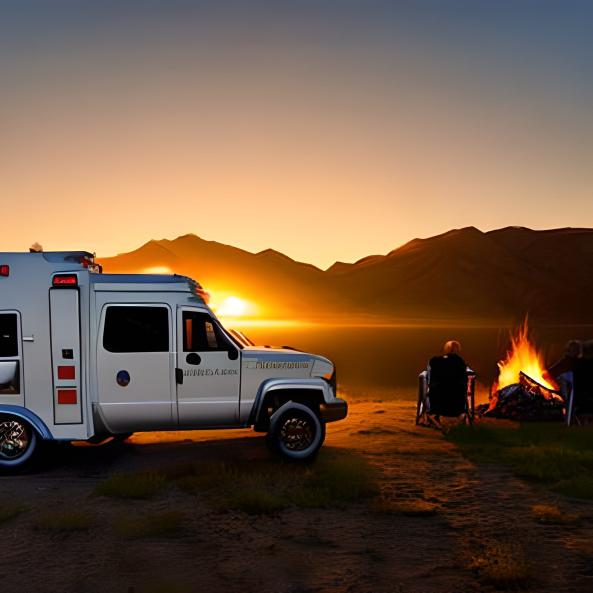
First, look into camping memberships like Passport America or Boondocker’s Welcome, which offer discounted rates at participating locations all over the country. These deals are often available for city parks as well as public campgrounds and will save you from having to pay the standard nightly rate. If you’re creative with planning, these discounts could make up a significant portion of your food budget while traveling!
For even further savings, use travel blogs such as Outdoorsy or Campendium to seek out free campsites near popular attractions or state/national parks where it might not otherwise be allowed. Some of these sites may require emptying your Black tanks every few days; however, if you plan ahead this should still come at no cost (or minimal cost).
The key is being flexible and resourceful when looking for opportunities to save money without sacrificing quality experiences. With some savvy searching, there are plenty of ways to explore new destinations each month without putting too much strain on your wallet – all within the comfort of your own home on wheels!
Grocery Shopping Strategies For RVers
Have you ever considered how grocery shopping strategies differ when living the full-time RV lifestyle? While there are some similarities to traditional grocery store trips, such as checking expiration dates and stocking up on nonperishable items, there are also a few key differences that require further attention. With a bit of forethought and planning, it’s possible for an RV traveler to shop smartly and efficiently while still enjoying delicious meals in their home away from home.
The first consideration is storage space. Most RVs come with limited room for groceries, so it pays to plan ahead before hitting the stores. It may be wise to create a meal plan so that only necessary ingredients need to be purchased at each visit; having too many perishable items could cause them to spoil quickly due to lack of space or air conditioning. For this reason, investing in a Berkey water filter can help conserve fresh drinking water without needing extra tanks which take up precious cargo area.
When shopping for longer weekend trips or extended stays, consider bulk purchases of staples like cereal grains, oats, canned veggies and soups – all easy add-ins with any meal! If camping off the grid often, buy readymade snacks like granola bars that don’t require an oven or stovetop cooking methods. Many families enjoy baking homemade treats in their RV kitchen but remember: these sweet delights require more electricity than other foods do, so keep usage minimal during those hot summer days.
Grocery shopping isn’t just about filling your cupboards; it’s about being mindful of what will fit within both your physical and financial budgets when on the road full time. Remembering these tips will ensure you have nutritious food onboard without breaking the bank – leaving enough left over for fun activities along the way!
Maintenance And Repair Costs
Living in a full-time RV can be exhilarating, but it also comes with costs. South Dakota is a great place to start your journey and explore new places, but when you decide to live on the road for extended periods of time you need to consider certain maintenance and repair expenses that may occur along the way. When living in an RV one must understand that there are major expenses associated with regular upkeep and care of the motorhome.
These costs depend largely on how often you travel and make stops; if something goes wrong while on the road or during everyday life, then repairs will have to take priority over sightseeing. For example, tires may wear out faster due to frequent driving – this could lead to needing replacements more frequently than anticipated. Additionally, parts like brakes, engines and other mechanical components may require attention sooner rather than later depending on usage levels.
Although these types of unexpected occurrences can be stressful at times, they should not deter potential nomads from embarking on their desired journeys; planning ahead by investing in insurance coverage will provide much needed peace of mind if any issues arise down the line.
Investing In Insurance Coverage
When it comes to investing in insurance coverage for full-time RV living, there are some important questions to consider. How much will you need? What type of coverage should you get? Are there any special considerations due to the fact that your home is a house on wheels?
First and foremost, when considering an insurance policy for full-time RV living, be sure to research the specific needs of a motorhome versus those of other types of vehicles. Even if you plan on spending most of your time at Glacier National Park or another popular destination spot, it’s still wise to invest in comprehensive coverage just in case something unexpected happens while traveling. Additionally, look into liability protection as well as add-ons such as roadside assistance and vacation rental liability.
Next, decide how much coverage you want based on your individual circumstances. Think about factors like floor plans, entertainment budget and lifestyle choices when calculating these costs. Also, keep in mind that certain states may require more extensive coverage than others so make sure to check local laws before making final decisions. In addition, consider purchasing additional riders should unforeseen events arise during your travels—such as theft or damage from inclement weather—so you’re protected no matter where life takes you.
No one likes thinking about accidents but having adequate insurance coverage can provide peace of mind knowing that if anything does happen along the way, you’ll have the financial resources needed to take care of any repairs or replacements quickly and efficiently. Investing smartly now can help ensure smooth sailing down the road (pun intended). With proper planning and careful consideration put into selecting an appropriate policy for full-time RV living, travelers can rest assured they’ve made a sound investment in their future adventures. As we move forward with our journey towards understanding life on the open road , let us turn our attention next toward preparing for emergencies while on the go .
Planning For Emergencies On The Road
It’s a well-known fact that when you’re living full-time in an RV, your home is constantly on the move. But what happens if something unexpected occurs while you’re out on the road? It’s important to plan ahead for any emergency situation and anticipate how it might affect your ability to stay safe and properly maintain your tiny living space – with limited counter space and other amenities of traditional homes.
The key here is preparation. Before you start exploring in your RV, make sure you know where all the essential tools are kept – like fire extinguishers, flashlights, medical kits, etc. Having these items easily accessible will help ensure you have them at hand during an emergency situation or power outage. Additionally, understand how your water system works so that you can proactively check for issues before they arise; this includes checking the hoses regularly and replacing them when necessary. And finally, keeping up with regular vehicle maintenance will also help prevent emergencies from occurring while out on the road.
By being proactive about planning for potential emergencies as soon as possible, you’ll be able to feel confident while traveling in your small but mighty RV home. As always though, safety should be priority number one! The next step is finding the right vehicle for your needs…
Choosing The Right Vehicle
The choice of vehicle is one of the most important decisions when it comes to full-time RV living. To begin, you’ll need a vehicle that has enough feet of living space for your family and all their belongings. It’s also important to consider other features such as fuel efficiency or how much weight the vehicle can carry. You should also think about any special needs you may have. For example, if you want to tow a car behind your RV, make sure the engine is powerful enough to handle it.
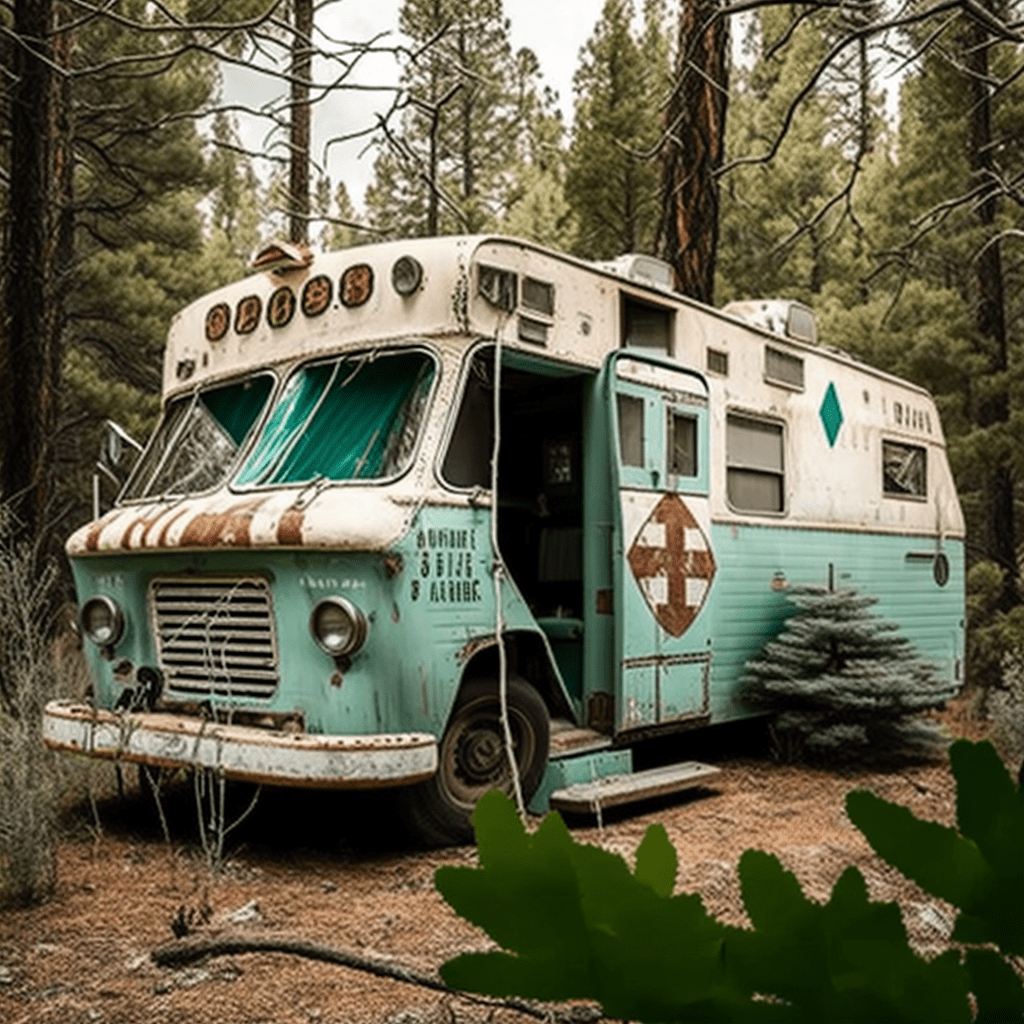
When considering size, remember that bigger isn’t always better – especially if you plan on spending time in small towns with narrow streets or getting off the beaten path. Think about where you’re going and what type of terrain you will encounter during your travels so that you choose an appropriate sized vehicle.
At this point, it’s helpful to take a look at some models online and even visit dealerships; they often offer test drives so that you can get familiar with different vehicles before making a decision. Asking fellow RVers for advice can help too – many are willing to share tips from their own experience. With these considerations in mind, seeking out just the right fit becomes easier — opening new possibilities for exploration and adventure ahead.
Making Room For Pets And Children
Full-time RV living creates an endless world of possibilities, and those who decide to make the transition into this lifestyle often find that they can create a home for their family unlike any other. With so much potential to explore, it’s no wonder why some families are able to turn full-time RV living into a dream come true!
Several factors must be considered when planning an RV to accommodate pets and children:
- Space: How much space is available? Is it enough for everyone’s needs?
- Safety: Are all areas safe for kids or animals? Are there childproof locks on cupboards and drawers?
- Comfort: Will your pet have access to comfortable bedding and toys? Do the kids have enough room to play games or watch movies?
- Schedules: What kind of schedules will you need to keep while travelling with small children or pets? Are there options for daycare or boarding when needed?
- Expenses: How much money do you expect to spend on food, vet visits, grooming, etc.? Does your budget allow for these expenses over time?
The answers to these questions will help determine what type of lifestyle changes may be necessary when transitioning into full-time RV living with pets and children. For instance, finding a balance between activities indoors and outdoors can provide much needed breaks from one another during long drives. Additionally, packing light yet essential items such as favorite blankets or stuffed animals can ease young ones away from home anxiety. Finally, planning ahead by researching local parks and attractions along the way helps ensure that everyone has plenty of opportunities to enjoy themselves throughout the journey.
Organizing possessions is just one piece of the puzzle when it comes to preparing for life on the road with kids and pets. Taking steps early on like developing schedules, creating safety plans, and establishing budgets will pay off in spades once out traveling down new roads together.
Organizing Your Possessions
Organizing your possessions when living in an RV requires time and thought. With limited space, it’s important to make sure you have everything you need without overpacking or cramming too much into the small area. Before packing up for your new life on the road, take stock of what items you really need to bring with you. Think about each item individually and determine if it is a necessity or just something nice to have. Consider whether it will be used often enough that its weight and size are worth the added burden.
Once you’ve decided which items are necessary, think about how best to organize them so they can fit comfortably within the confines of your home-on-wheels. You may want to use storage boxes, shelving units, wall organizers, and other compact ways of keeping things organized and out of sight. Doing this will help create a more spacious environment while maintaining easy access to all your belongings.
Finally, keep in mind that unless absolutely essential, large furniture pieces should be left behind as they simply cannot fit inside an RV – not even mini vans! This means finding creative solutions such as folding chairs or bean bags instead of bulky couches or recliners. Once you come up with these ideas, organizing your possessions becomes easier than ever before! As we move forward into our next section on safety tips for RVers, remember to consider every detail carefully before taking off for full-time RV living!
Safety Tips For RVers
Transitioning away from the daunting task of organizing your possessions, we now move to a topic that is just as important: safety tips for RVers.
It’s easy to be lulled into a false sense of security while living on the road, assuming that you’re always safe and secure because you are in control of your environment. But this couldn’t be further from the truth! In fact, it is essential to take extra precautions when traveling in an RV and become aware of potential risks associated with life on the road. As Lao Tzu said, “The journey of a thousand miles begins with one step.” And this first step should include taking some basic safety measures for yourself and your family.
First off, make sure that your vehicle is well-maintained and regularly serviced according to manufacturer specifications. Check all tires routinely for wear and tear and keep them properly inflated; check fluids such as oil, brake fluid, power steering fluid, antifreeze/coolant level at least once every week; inspect brakes before each trip; replace windshield wipers if they become worn or torn; and finally keep spare parts on hand so you can do minor repairs if needed while out on the road. Additionally, familiarize yourself with local laws in different states—particularly those related to camping—and follow these rules accordingly.
Next up is personal safety: stay alert at all times when out exploring new places; travel during daylight hours whenever possible; lock doors even when inside campgrounds; install motion sensor lights around the campsite perimeter; avoid leaving valuables unattended outside your rig or showing large amounts of cash in public areas; set up boundaries with other people who live nearby (both RVers and locals); use common sense when meeting strangers or engaging in conversations online; let someone know where you will be heading next before you leave any given location; carry pepper spray or mace along with basic survival kits like flashlights & batteries, blankets & water bottles etc.; lastly have emergency contact numbers handy in case something happens.
Living full time on the road opens us up to many opportunities but also requires us to take special care regarding our own safety protocols. Being prepared for anything means being proactive about making sure our rigs are maintained correctly and following certain guidelines designed to protect ourselves from harm’s way both physically and mentally. Taking proper precautions will help ensure smooth sailing no matter what destinations may come our way down the line!
Frequently Asked Questions
How Long Does It Typically Take To Adjust To Full-Time RV Living?
Adjusting to full-time RV living takes time. It’s not something that you’ll be able to do overnight; it takes a while for most people to settle into their new lifestyle, especially if they have never done anything like this before. This is why it’s important to take the time necessary to learn all of the ins and outs of RV life before diving in headfirst.
In order to successfully transition from an everyday home lifestyle to one on the road, there are some key points you should keep in mind. Make sure your vehicle is properly equipped with supplies such as food, water, and other items that will help make your journey easier and more comfortable. Also, familiarize yourself with basic maintenance tasks so you can easily handle minor problems when they arise. Additionally, research popular camping areas ahead of time so you know where you’d like to stay during your travels.
RV living requires patience and resourcefulness. You must remain open minded and flexible as unexpected situations are likely to occur throughout your journey. Don’t let these issues prevent you from enjoying the experience though! Like any big change in life, learning how to adjust takes practice – but don’t give up; embrace each day as an opportunity for growth and exploration. With enough preparation and dedication, you can eventually find success in full-time RV living!
What Is The Best Way To Find Work While On The Road?
As the RV lifestyle becomes increasingly popular, many people are eager to hit the road and experience life on their own terms. But one of the key questions that often arises is “what is the best way to find work while on the road?” Fortunately, there are plenty of resources available for those who wish to make a living while traveling in an RV.
One option is finding traditional employment that allows you to take advantage of your location flexibility. For example, some employers provide remote working opportunities or allow employees to travel with them as part of their job duties. Additionally, many companies offer freelance jobs that can be done from anywhere in the world—perfect for anyone looking for a more independent lifestyle.
Another great option is becoming self-employed by starting a business or launching an online venture. Many entrepreneurs have successfully launched businesses such as web design firms and digital marketing agencies through which they earn money while also enjoying freedom and flexibility associated with being on the open road. There are even special loan programs specifically designed to help aspiring entrepreneurs launch their ventures, so don’t let fear stop you from achieving your dreams!
No matter what route you choose when it comes time to embarking upon full-time RV living, having access to reliable internet service will be essential both for work and keeping connected with friends and family back home. By doing a bit of research ahead of time about options related to making money along your travels, you’ll be better prepared for whatever journey lies ahead—no matter where it takes you!
How Do You Find Reliable Mechanics For RV Repair?
RV repair can be a major concern for those embarking on the full-time RV lifestyle. Reliable mechanics who understand and have experience working on RVs are essential in order to keep your home running smoothly while traveling. Here’s what you need to know about finding reliable mechanics for your RV:
First, ask around. Talk to fellow campers or join an online forum dedicated to RV living – there is sure to be someone out there with advice on where to go for maintenance and repairs. Don’t be afraid to reach out! It may take time, but it will pay off when you find that perfect mechanic who understands your needs as a full-time camper.
Second, make sure they have the right credentials. Most states require certification from a certified technician before work begins; check their qualifications carefully and don’t hesitate to ask questions if something doesn’t seem right. Additionally, look into reviews of the shop itself – this should give you an idea of how capable they are at taking care of vehicles like yours.
You also want to research prices ahead of time so you know what kind of cost you’ll incur when bringing your vehicle in for service or repairs. Knowing approximately how much money is necessary can help prevent any surprises down the line and ensure that your funds stay afloat throughout your travels. Here are some key points to remember when looking for reliable mechanics for RV repair:
-
- Ask around for recommendations from fellow campers or join an online community focused on full-time RV living
-
- Check certifications and reviews of each mechanic/shop
-
- Research pricing upfront before beginning any services/repairs
Finding reliable mechanics for RV repair takes time and effort, but having them available means peace of mind during long trips away from home. With a little bit of research beforehand and good communication skills, you’ll soon be able to trust these professionals with keeping your home away from home safe and sound no matter where you choose to roam next!
How Do You Deal With Mail And Bills While Traveling?
Dealing with mail and bills while traveling is an important consideration if you plan on living full-time in your RV. You can’t just ignore these things or they will pile up quickly, leaving a lot of mess to sort out when you reach your destination. It’s essential that you decide how best to manage them before you set off on the road for long periods of time.
One option is to have someone back home act as a forwarding agent for any letters sent to your permanent address – this could be a parent, sibling, friend or even a post office box service who are happy to store and forward items on your behalf. The beauty of this method is that it keeps all of your official correspondence together so you don’t miss anything important like medical records or tax documents. Alternatively, if you’re comfortable using digital services then there are lots of apps available today which allow you to scan and upload copies of vital documents such as bank statements and utility bills directly into cloud storage where they remain secure until needed.
Whichever route works best for you make sure everything is organized properly: keep track of key dates such as bill payments due, annual insurance renewals etc., create regular reminders so nothing slips through the cracks – because being organized now will save much hassle later down the line! Plus, it means that wherever life takes you next; whether it’s onto another adventure or settling down some place new, at least one part of your life remains organized and manageable.
What Are The Best RV Parks For Families?
RV parks are an integral part of the full-time RV living experience. They provide a safe and secure place for families to park their RVs and explore, as well as access to amenities like laundry facilities, bathrooms and showers. But not all RV parks are created equal – some are better suited for families than others. So what are the best RV parks for families?
It’s important to consider factors such as safety, cleanliness, affordability and proximity to activities when choosing an RV park. Here is a list of 4 key items that will help you find the perfect fit:
-
- Location: Is it close enough to attractions or other points of interest you want to visit?
-
- Amenities: Does it offer features such as a pool, playgrounds or game rooms?
-
- Cost: Can you afford the nightly rate?
-
- Reviews: What do people say about the park in online reviews?
Finding an ideal RV park can be challenging but also rewarding. With careful research and consideration of these four elements mentioned above, you can rest assured knowing that your family has chosen a safe and comfortable spot to enjoy your travels together!
The most important thing is that everyone feels at home wherever they go; after all, no one wants to stay somewhere with bad vibes or unhelpful staff members. Moreover, having access to modern conveniences like Wi-Fi connection, electric hookups and cable TV make life on the road much easier and more enjoyable for everyone involved!
Conclusion
Living full-time in an RV can be a thrilling adventure, but it also requires proper planning and research. Before you start your journey, take the time to understand what life on the road will look like for you and your family. Consider how long it typically takes to adjust to this lifestyle, as well as ways of finding work and reliable mechanics if needed. Be sure to stay organized with mail and bills so that all paperwork is taken care of while living away from home. Lastly, find those perfect RV parks along your route that provide amenities designed especially for families.
It was my own leap into full-time RV living years ago that showed me just how much joy I could experience when stepping out of my comfort zone. The sights and sounds surrounding me were new each day, allowing me moments of delight amidst unfamiliarity. It’s these memories that I cherish most now: watching sunsets over vast landscapes; playing cards surrounded by friends; roasting marshmallows around campfires after nightfall. These are the experiences etched on my heart – reminders of why we chose this nomadic way of life in the first place.
In hindsight, the decision to embark on our journeys has been one of the best ones I’ve ever made! So if you’re ready for something new and exciting, don’t hesitate – embrace full-time RV living today!

